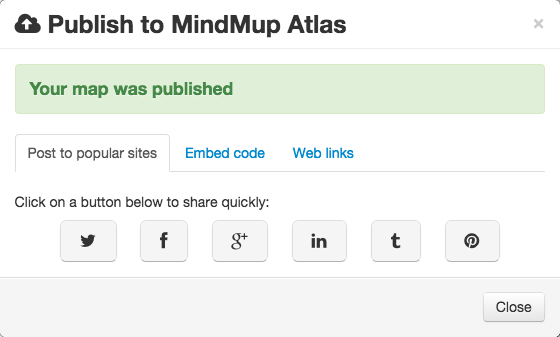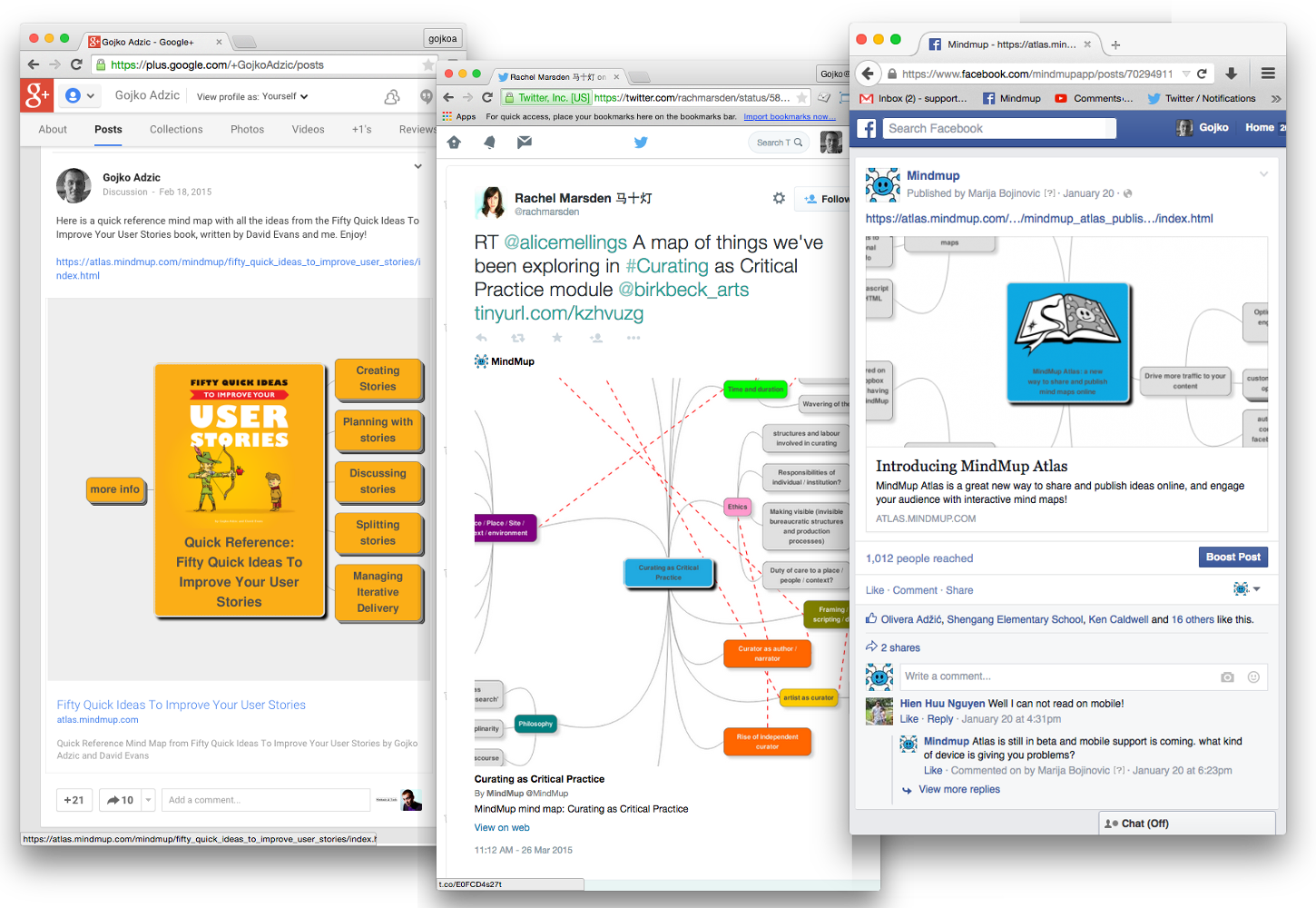Mindmup Atlas makes it easy to share mind maps with the world, when you just want to publish to an audience instead of co-creating with collaborators.
MindMup Atlas is a cloud mind map library that enables authors to publish interactive, read-only versions of their maps, optimised for posting to social networks, embedding in web sites and search engine indexing. With just a few clicks, share your ideas and engage your readers using interactive mind maps. Let Atlas serve your content securely and quickly through a global content delivery network, or download your maps and host them on your web site.
Engage your audience with interactive mind maps
Instead of generating a static image or a PDF, publish interactive maps that your audience can engage with. Make large maps easy to work with by collapsing nodes and your readers can open them as they want. Connect your content with articles and resources online by adding links, and your readers will be able to just click on them to see more information. Provide in-depth rich-text content for your ideas using attachments, and your readers will be able to view them with one click.
To get started, just click on the Publish button in the top-right corner of the MindMup web application, or select File > Publish from the main application menu.
Share maps easily and securely
Viewers only get read-only access to your content, so you don’t have to worry about security or managing privileges. They will see a streamlined, simplified user interface that enables users to instantly engage with your content, without distractions.
Atlas maps are served to the audience worldwide through a content-delivery network spread across the globe, ensuring that your viewers see maps quickly regardless of where they are. All content is served using HTTPS, preventing open wi-fi networks, hotel operators and other middlemen from modifying your content and injecting ads.
Even better, Atlas makes it easy to post your maps easily to popular social networks and link sharing sites with a single click.

Get visibility on social networks
For authors that want to publish maps to social networks, Atlas makes it hassle-free. We automatically add images and contextual information to ensure that your maps show up nicely on Twitter, Facebook, Google+, LinkedIn and Pinterest, and provide automatically generated thumbnails for other sites to display with the text.

Easily integrate maps into your blog or web site
When you publish a map to MindMup Atlas, you can easily include it in your web site or blog as an iframe. This means you can now publish maps on Google Sites, Blogger and other link sharing sites.
You can also download the entire archive and host the map yourself. Atlas maps are self-contained HTML files, so you can easily modify the page to include additional widgets and publish under your own domain.
Atlas will automatically generate nice thumbnails you can use on sites that do not support embedding, so you can post an image and link to the interactive map.
Atlas maps adjust to users’ browsers and capabilities. People accessing on very old browsers will see a static image. People accessing with browsers that do not support a full range of interactivity will see a static HTML page and be able to move around. Readers with modern browsers will be able to fully engage with your content.
Republishing maps
MindMup Atlas serves maps to readers using a global content distribution network - this means that the content is cached at servers close to your audience, all over the world.
The benefit is that maps load faster for your readers, and they generally get a better experience with the maps you published.
The downside is that the content is not going to update immediately if you re-publish a map. In fact, it may take up to 30 minutes for people around the world to see the updated content. This only applies to re-published maps, newly published maps are available immediately.
A work-around for this is to publish the map under a different URL. To do that, change the URL slug when the map gets published. Note that the old content will not get removed in this case, so you’ll have two versions of the map published with two different URLs.
Restricting Atlas usage for organisational accounts
Although Atlas makes it easy to share maps, some organisations (such as schools) may not want to allow their users to publish content. Organisational administrators can choose whether their users are allowed to use MindMup Atlas or not on the Account page.
This feature is available to all Organisational MindMup Gold accounts.